Why disinformation threatens humanitarian operations in restive DRC
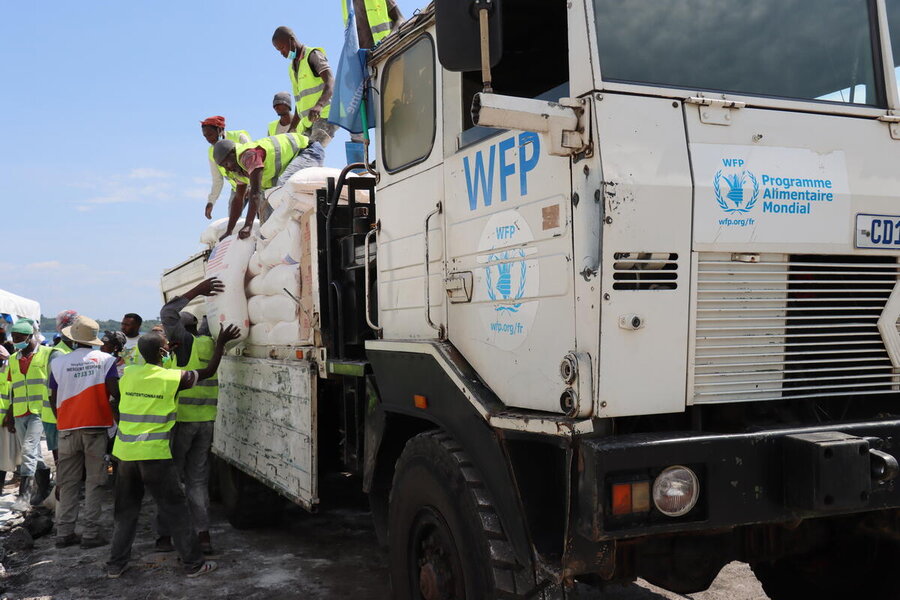
The Democratic Republic of the Congo (DRC) accounts for one of the world’s largest internal displacement crises, with a stunning 6.5 million people uprooted. The majority are spread across four eastern provinces, where non-state armed groups proliferate and conflict rages. But there’s another threat to humanitarian access in the region: disinformation. WFP.org caught up with Wilfred Nkwambi, head of the World Food Programme’s (WFP) northeastern Goma area office, in North Kivu province, to learn more.
How does disinformation threaten humanitarian operations?
In order to operate in tightly controlled areas and safely reach people in the region, WFP interacts with all influential stakeholders, including non-state armed groups, to get favourable access conditions and guarantees. This work requires constant engagement with both leadership and combatants in the field, including at checkpoints.
Besides managing access and insecurity, countering misinformation or disinformation – where inaccurate or misleading information and rumours are relayed intentionally – has become a major challenge, as communities or influencers spread rumours through social media about United Nations agencies and humanitarian organizations.
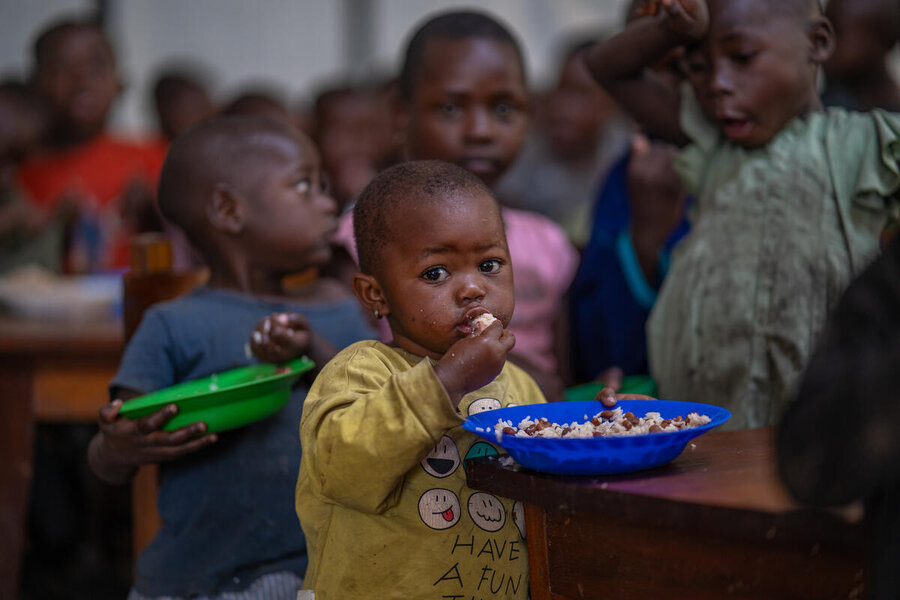
This can be a major barrier for multiple reasons. For one, misinformation or disinformation can threaten the unhindered distribution of food. If we don’t communicate effectively with local populations where we operate, our staff can be attacked or threatened, and our operations damaged.
Social media and mobile phones have shifted the landscape in other ways. Our work is under more scrutiny from the people we serve, interest groups and non-state armed actors. Today, simply stating that we work for the UN doesn’t appear to carry the weight it once did.
People want to see the real impact of our work. But our impact is undermined by rampant disinformation and misinformation – not just on social media, but at the community level as well. The spread of false information on the internet and at the grassroots can escalate conflicts even further.
What’s the solution?
Effective communication is crucial. Planning ways to sensitize communities and deliver important messages is key. So is improving our conflict sensitivity and embedding the centrality of protection into what we do.
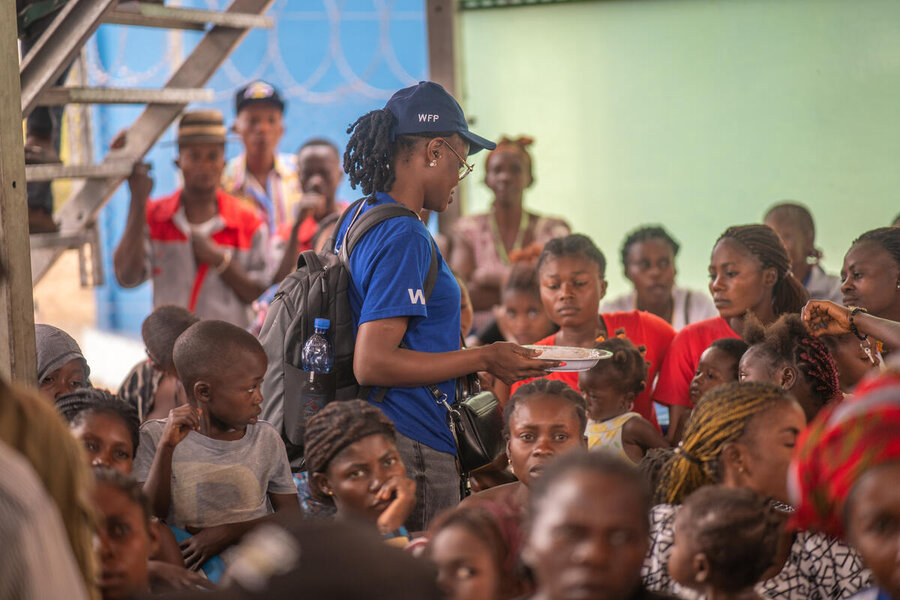
Last year, for example, WFP received a large donation of imported wheat that families in displacement camps were not used to eating; the staple diet here is maize flour. So this made wheat’s acceptance difficult, and opened us up to criticism. We carried out cooking sessions with the community to find some middle ground, cooking the wheat in ways people found tasty. Our approach is to always listen and work with the communities, so we can adapt and adjust to their needs.
Sixty Seconds With... AfroCongo music star Innoss’B: School meals, ending hunger and DRC
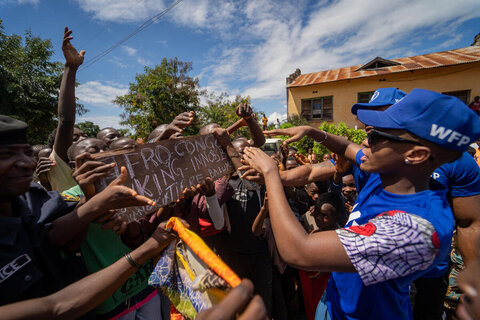
Can we see problems coming?
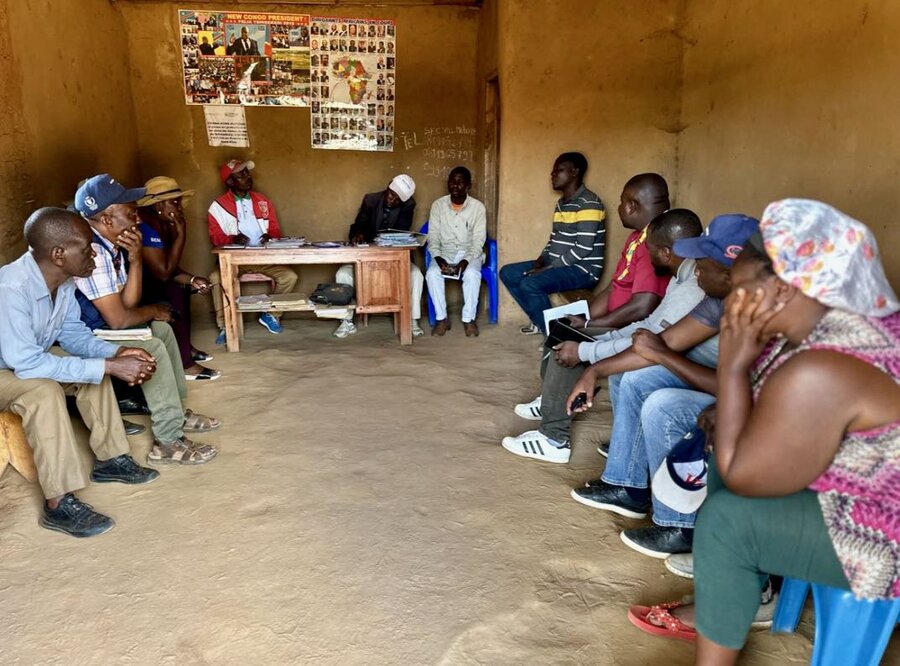
Yes, we can anticipate. For one, we monitor social media to detect any misinformation or false information circulating about WFP activities in DRC. Sensitization and outreach are also key. For example, despite a recent spate of attacks on non-governmental convoys in certain eastern DRC hotspots, our sensitization campaigns with youth groups and local authorities helped us recover our trucks and transport food safely.
Additionally, we partner with local media, including community radio, to disseminate accurate information about our activities to wider audiences, particularly in rural areas. Our communication teams also organize sessions with local influencers and various youth groups for the same purpose.
What else is key to building community trust?
We do a lot of training with local communities, civil society leaders and media, to make sure they understand WFP operations. Within WFP, we regularly run protection and communications training for our frontline field staff, role-playing scenarios and discussing different outcomes.
